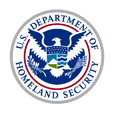 Philip Reitinger, the top information security official at the Department of Homeland Security, is going to step down from his post at the beginning of June, just a couple of weeks after the Obama administration laid out the details of its latest strategy to improve the country’s online defenses and plans to work with foreign nations to reduce cybercrime.
Philip Reitinger, the top information security official at the Department of Homeland Security, is going to step down from his post at the beginning of June, just a couple of weeks after the Obama administration laid out the details of its latest strategy to improve the country’s online defenses and plans to work with foreign nations to reduce cybercrime.
Reitinger joined DHS in 2009 after a stint at Microsoft in the company’s Trustworthy Computing division, and under his watch the department has been able to make some progress in reducing the inter-departmental bickering that has hampered the federal government’s information security efforts for the better part of a decade. Although DHS has been the lead agency for national cybersecurity for some time, infighting between the department and the Department of Defense, various intelligence agencies and other government agencies has been a serious problem for years.
Reitinger’s departure from DHS comes less than a week after President Obama submitted a major package of cybersecurity legislation to Congress, which includes a proposed national data breach notification bill. And on Monday, Howard Schmidt, the White House cybersecurity adviser, along with a number of other administration officials, unveiled the country’s International Strategy for Cyberspace, a sweeping policy document that spells out the administration’s thinking on cybersecurity, how to deal with attacks and how it will work with other governments to reduce cybercrime and ensure the sustainability of the Internet.
In an interview with the National Journal, Reitinger, who is the deputy undersecretary of the DHS National Programs and Protection Directorate, said that he’s leaving his post because he’s eager to spend more time with his family.
It’s unclear who will step into Reitinger’s role when he leaves June 3, but whomever takes the position will be stepping into the job at a critical time in the country’s fight against cybercrime and other online threats. Attackers in the last few years have been moving to increasingly sophisticated targeted attacks against major corporations, government agencies and utilities, and DHS and other organizations responsible for online security have been struggling to keep up with the threats.









